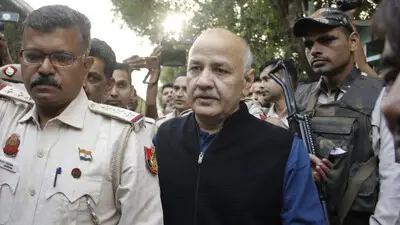Recommended Stories
These will be kicked off by the address of President Pratibha Patil to the joint sitting of Parliament. The President`s address on Monday, which is likely to focus on economic performance and challenges before the government, will be followed by presentation of Rail Budget by Railway Minister Dinesh Trivedi and tabling of Economic Survey during the week.
Besides, the Agriculture Ministry is slated to come out with a farm sector survey that will list out the problems and suggest steps for improving agriculture sector performance in the medium and long term.
The major task before the economic managers will be to push Gross Domestic Product (GDP) growth rate which according to latest estimate is expected to decelerate to a three-year low of 6.9 per cent in 2011-12 from 8.4 per cent a year ago.
The process of presentation of the Budget this year was delayed because of the elections in five states of Uttar Pradesh, Punjab, Uttarakhand, Manipur and Goa. Instead of the usual date of the last day of February, the budget will be presented by Mukherjee on March 16.
The presentation of the Budget in Parliament will be preceded by the Railway Budget and Economic Survey on March 14 and 15 respectively.
The Reserve Bank, which has set the ball rolling by reducing cash reserve ratio (CRR) to address liquidity problems, may announce more such steps in its mid-quarterly policy review on March 15.
The poor performance of the Congress in the Assembly elections may have some bearings on the Budget proposals as Mukherjee would be constrained in announcing tough steps to reduce rising subsidies and contain fiscal deficit.
The fiscal deficit during 2011-12 is expected to exceed the budget target of 4.6 per cent of the GDP by one percentage point. Despite political compulsions, Mukherjee may announce some steps to keep it within the manageable limit.
His main task, however, would be to arrest declining growth through fiscal and other measures. Having grown at 8.4 per cent for two consecutive years, the growth rate is likely to fall to 6.9 per cent in the current fiscal.
As regards the reforms, Mukherjee is likely to implement some of the provisions of the Direct Taxes Code (DTC) and may provide relief to tax payers by raising the tax exemption limit. The Minister may also raise the limit for tax savings schemes.
Key reforms, including Goods and Services Tax (GST), FDI in multi-brand retail and raising FDI cap in insurance sectors, may have have to wait for an opportune time.
The priority, however, will be to control inflation which is a challenge more so after Congress President Sonia Gandhi cited high prices as one of the reasons for poor showing by her party.
After remaining at near 10 per cent last year, the wholesale price-based inflation in January softened to 6.55 per cent. The retail inflation was 7.65 per cent.












